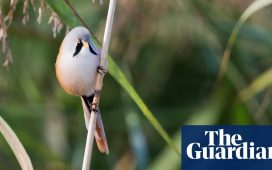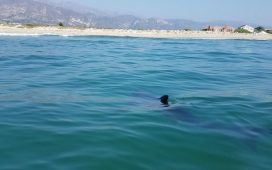Could climate change lead to breakups? It looks like albatross relationships are the latest victims of global warming.
Albatrosses are long-living seabirds known for their monogamy. A recent study found that divorce rates in albatross couples were up due to warmer seas.
Researchers studied 15,500 breeding pairs in the Falkland Islands over 15 years. Warmer waters due to global warming forced these birds to travel further for food. The increased stress from this migration is thought to have triggered the relationship breakdowns.
‘Environmentally driven divorce may therefore represent an overlooked consequence of global change,’ said the study published in the Royal Society journal.
Just 1% of albatrosses separate after choosing a mate which is a much lower divorce rate than humans in the UK.
‘Monogamy and long-term bonds are very common for them,’ Francesco Ventura, a researcher at the University of Lisbon and co-author of the study, told the BBC.
Social monogamy — having one mate for life — is widespread in over 90% of bird species. In many socially monogamous species, divorce is a strategy used to correct unsatisfactory partnerships and is based on previous breeding performance.
The environment affects the productivity and survival of populations, thus indirectly affecting divorce.
Researchers found that divorce rates varied from 1% to 8% across the years and that birds were more likely to divorce after breeding failures.
However, regardless of previous breeding performance, the probability of divorce was directly affected by the environment, increasing in years with warm sea surface temperatures.
Scientists’ models showed that females in successful relationships were more likely to switch mates as the temperature of seas increased.
The study gives us the first evidence of the role played by environmental conditions on divorce rates in a long-lived socially monogamous population.
‘Divorce’ in albatrosses is basically just cheating, in human terms. It’s when one coupled bird, mates with a different one.
Normally, albatross divorce is triggered when a pair fail to breed, so they find new partners when the next breeding season comes around. This study showed that pairs were divorcing even if they’d had a successful breeding season.
The two possible theories for this was long-distance relationships and warming waters forcing the birds to hunt for longer and fly further.
If birds failed to return in time for breeding season, their partners moved on to a new partner.
Harsher environments like warmer waters also increased stress hormones in albatrosses. Tougher breeding conditions coupled with food scarcity caused more stress in the birds leading to ‘poor performance’ and ultimately divorce.
It’s the first time that the disruptive effects of challenging environmental conditions on a monogamous population have been studied and it looks like climate change could affect our relationships just as much as our health.
For similarly monogamous populations like humans, this study could be the first step in understanding the effect of climate change on our relationships.
MORE : We can’t blame Black Friday shoppers for climate catastrophe – that’s on the companies
MORE : Climate Change and the Environment: Five key books to change what you think










